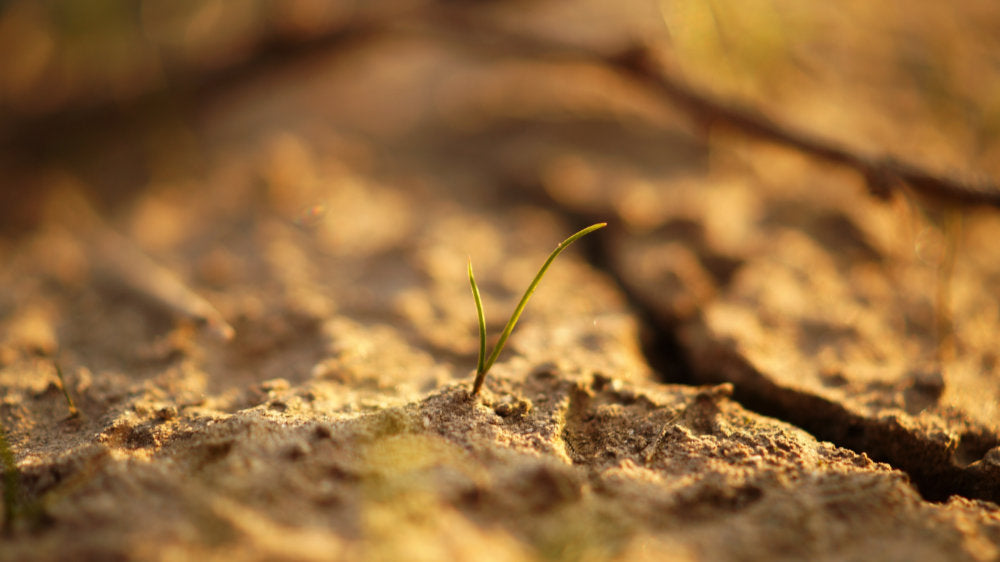How to Tell if Your Skin is Dehydrated (And How to Make it Supple Again)

This post is a comprehensive guide on dehydrated skin and how you can manage it.
You'll learn:
- The difference between dry and dehydrated skin,
- How to test your skin for dehydration,
- And how to properly treat dehydrated skin.
TABLE OF CONTENTS
Introduction
Environmental changes and aging may cause your skin to lose water. Losing some water is normal. But you lose excess water, and…hello dehydrated skin.
If you don’t replenish the moisture, it may even result in skin sensitivity and irritation.
The good news is dehydrated skin is a transient skin condition and can be managed by following specific skin care tips and making lifestyle changes.
What Is skin dehydration?
Dehydrated skin is a condition where it lacks moisture. Your body is 65% water, and it needs water for various functions, such as lubricating joints and removing waste in the form of urine.
If you don’t replace water loss by drinking fluids, it may result in dehydration that affects various body organs, including the skin.
However, it’s essential to understand that dry and dehydrated skin are not the same. Dry skin is a skin type, and you are usually born with it. On the other hand, dehydrated skin is a transient condition and can be resolved with lifestyle changes and topical treatment.
What causes skin dehydration?
About 15% of your body’s water is stored in the skin, which acts as a reservoir for other organs to use it.
The skin also allows the exchange of water with the external environment. This means water from the deeper layer of the skin can move to the surrounding air and vice versa. This loss of water from the skin is known as transepidermal water loss (TEWL).
The outer layer of the skin protects against water loss from the skin. If this barrier is impaired, your skin starts losing water, resulting in dehydration.
Factors that can alter the functioning of the skin’s outer layer include:
- Environmental: Cold, wind, smoke, UV rays, and pollution
- External: Tobacco and alcohol
- Emotional: Fatigue or stress
- Treatments: Medicines used for certain conditions such as acne and high cholesterol levels
- Cosmetics: Products that are too stripping, aggressive, or drying
- Aging: As you age, your skin becomes more fragile and thinner, making it susceptible to dehydration.

What are the signs of dehydrated skin?
Not sure what dehydrated skin looks like? Here are some common symptoms that indicate your skin is losing water:
Increased sensitivity
When the skin’s barrier is altered, it becomes more sensitive. The skin cannot protect itself from external stressors, such as pollution and bacteria. This results in redness and irritation of the skin.
Itchiness
Loss of moisture from the outer layer of the skin makes it tight and itchy. This is often associated with flaking of the skin.
Dullness
Dehydration alters the normal turnover of the cells. Your skin cannot shed the outer layer, and dead cells build up on the surface. All this results in congestion, clogged pores, and a dull complexion.
Fine Lines and Wrinkles
Dehydrated skin may accelerate signs of aging. The wrinkles and fine lines appear as a network of triangular, tiny lines.
How to test if your skin is dehydrated
You may have some of the mentioned symptoms and wondering if you have dry or dehydrated skin.
There’s one test that can help you understand whether your skin is hydrated or not.
Pinch a small portion of the skin on the back of your hand. Usually, the skin should return to normal instantly. If your skin returns to the normal state more slowly, you may have dehydrated skin.
How To Treat Skin Dehydration
Let’s say you have the symptoms and the pinch test is positive. What can you do or how can you treat it?
Don’t worry! Dehydration is entirely treatable with lifestyle changes and topical application.
Let’s look at some simple yet effective ways to treat skin dehydration.
Drink Enough Water
The first important step is to replenish your hydration. So, drink at least eight glasses of water a day unless advised otherwise by your doctor.
You may need to drink more water based on your activity levels, age, and body weight.
Don’t like plain water? Add a dash of lemon and have a cold lemonade. You can also increase the consumption of water-rich fruits and vegetables such as watermelon and celery.
Maintain A Healthy Lifestyle
The following lifestyle changes may help improve your skin’s hydration:
- Exercising regularly
- Quitting to smoke
- Consuming alcohol in moderation
- Reducing coffee or caffeine intake
- Drinking water while working out
- Getting adequate sleep
- Eating plant-based foods such as vegetables, fruits, and legumes
Restore your skin’s natural protective barrier
As we discussed before, the outer layer of the skin protects against transepidermal water loss (TEWL).
Environmental and other factors may damage or alter this skin barrier, increasing the risk of dehydration. Some signs that your outer skin barrier is damaged:
- You have oily skin on the outside but it feels tight on the inside
- Usual skin care irritates your skin
- Usual foundation doesn’t apply well
Fortunately, you can improve the health of the skin’s barrier.
Moisturize Your Skin
While moisturizing the skin looks like a no-brainer, selecting the right product is the key. Experts recommend a moisturizer that is thicker than a lotion and has a higher oil concentration.
You may find these moisturizers heavier or greasier, but they are extremely helpful for moisturizing dehydrated skin.
A cream can be a great option to moisturize unless you have hypersensitive skin.
Use replenishing ingredients
It is best to look for skin care products with replenishing ingredients such as lipids, copper peptides, ceramides, and oatmeal. It also helps to avoid products with fragrance.
Ceramides and lipids replace defects in the barrier and provide the lost moisture. Oatmeal is soothing and hydrating. Hyaluronic acid maintains the moisture of the outer layer, and copper peptides allow moisture to penetrate deeper layers of the skin.
Avoid long, hot showers
While a hot shower may be refreshing, heat takes away moisture from the skin. It’s best to shower with warm water and be out in less than ten minutes.
Leave your skin a little damp after the shower and apply a moisturizer on top. This allows you to seal the extra water into the skin.

Don’t scratch your skin
Dehydration may cause itchiness. However, resist the temptation to scratch. It further damages the outer skin barrier.
Use a humifidier
If you feel the external environment is responsible for dehydration, a humidifier may help. It increases the air humidity so that the environment doesn’t suck moisture from the skin.
Exfoliate your skin
Dehydrated skin cannot regularly turn over the cells, accumulating dead cells on the topmost layer. Exfoliating will remove the build-up and allows the moisturizer to work more efficiently. However, exfoliate just once a week.
If your skin is sensitive, opt for an exfoliator with natural ingredients.
Add Serum to Your Skin Care Routine
The serum offers an additional layer of moisture to the skin. You can opt for a serum with peptides or hyaluronic acid.
Try Slugging
Slugging involves coating your skin with Vaseline before going to bed. It allows for sealing the moisture and provides a more nourished complexion.
Adapt according to the seasons
External humidity and temperature can affect your skin’s health and moisture. Harsh winters can increase the risk of dehydration, making your skin cracked, itchy, and irritated.
Host showers and low humidity can also dehydrate your skin. Moisturize your skin and avoid long, hot showers.
Adding sunscreen can help during summer and spring.
Avoid cosmetics or products with chemicals
Chemicals strip away your natural skin barrier, as well as the natural oils your skin produces. If your current products have chemicals, change them or stop using them.
It is also recommended to reduce the number of times you cleanse your skin as it damages the outer barrier.
Experts also advise staying away from acne products and retinol. Lastly, minimize the use of foundation and powder as they tend to absorb natural moisture and sebum from the skin.
Some Frequently Asked Questions
How Is Water Regulated In The Skin?
The skin is sensitive to water loss and protects it using hydroregulation mechanisms.
- Skin hydroregulation: Static (fixed) and dynamic (circulating) water provide hydration. Hydroregulation maintains a balance between both components to keep the skin hydrated.
- Natural Moisturizing Factors (NMFs): These molecules bind with the outer skin layer and are known as humectants. Common NMFs in your body are urea and lactic acid.
What’s the difference between dehydrated skin and dry skin?
Your skin can be dry, oily, or a combination of both. So, dry skin is a skin type.
On the other hand, dehydrated skin is a transient condition where the skin lacks water. Dry skin is often genetic, and you can’t avoid it.
Dehydration can be avoided by lifestyle factors and using topical applications.
What Precautions Should I Follow for Dehydrated Skin?
Here are a few tips that may help:
- Drink at least eight glasses of water
- Avoid overheated or airconditioned rooms and maintain a healthy indoor atmosphere
- Use rehydrating and chemical-free products
- Moisturize your skin regularly
- Hydrate your skin after swimming
- Protect your skin from UV rays or intense cold
Final Thoughts
Dehydrated skin can irritate you, but it can be managed once you know you have it. Follow the mentioned tips, and your skin will thank you.
The key is to moisturize the skin, drink enough water, and use chemical-free products.
We understand your problems. So, all Aleavia products are chemical-free, paraben-free, cruelty-free, and made with natural ingredients from the earth and sea.

